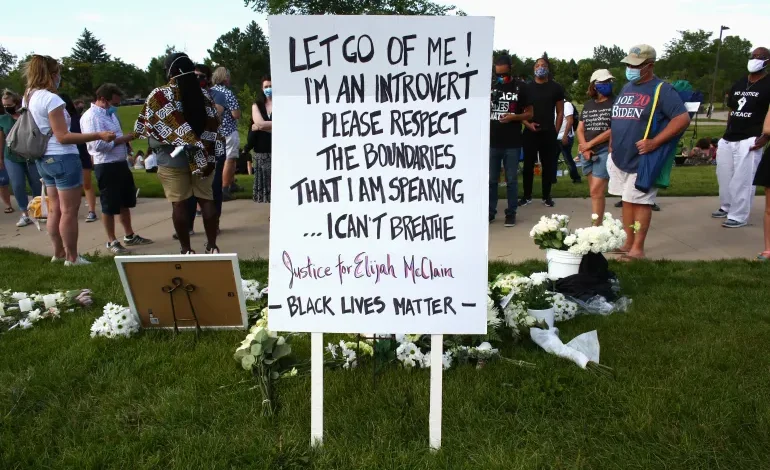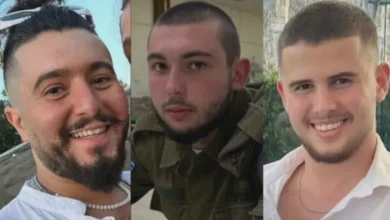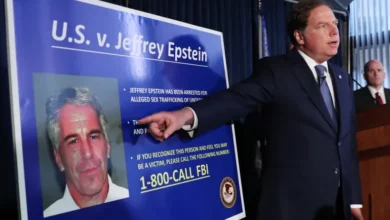US paramedics found guilty in 2019 death of Black man Elijah McClain

The death of 23-year-old McClain was the first among several recent criminal prosecutions against medical first responders to reach trial, potentially setting the bar for prosecutors for future cases.
It was also the last of three trials against police and paramedics charged in the death of McClain, whom officers stopped after a suspicious person complaint. The first trial ended with one police officer being found guilty of criminally negligent homicide and another acquitted. The second ended with a third officer being acquitted.
McClain’s mother, Sheneen McClain, wept outside the court on Friday as a supporter of the McClain family, MiDian Holmes, spoke with reporters on her behalf.
“We do not know justice until we see sentencing,” Holmes said. “We are still seeking justice.”
Colorado Attorney General Phil Weiser said accountability would not end with the convictions, and that much more work needs to be done to prevent the deaths of innocents at the hands of police and other first responders.
“Elijah did nothing wrong. His life mattered. He should be with us here today,” Weiser said.
“These defendants didn’t even try. When Elijah McClain pleaded ‘Please help me’, they left him there, they overdosed him on ketamine … they killed him,” prosecutor Jason Slothouber said during closing arguments on Wednesday.
Police confronted McClain on the night of August 24, 2019, after a bystander called 911 to report that the man was dressed in a winter coat and ski mask on a warm night, and was acting suspiciously as he walked home from a convenience store.
Police laid hands on McClain within seconds of stopping him and put him in a carotid chokehold at least twice. He vomited into his ski mask and repeatedly told officers he could not breathe.
The original autopsy conducted on McClain in 2019 found the cause of death to be “undetermined”. However, a revised autopsy report in 2021 concluded McClain died from “complications of ketamine administration following forcible restraint”.
Local prosecutors initially declined to file charges. That changed following the May 2020 killing of George Floyd
“These defendants didn’t even try. When Elijah McClain pleaded ‘Please help me’, they left him there, they overdosed him on ketamine … they killed him,” prosecutor Jason Slothouber said during closing arguments on Wednesday.
Police confronted McClain on the night of August 24, 2019, after a bystander called 911 to report that the man was dressed in a winter coat and ski mask on a warm night, and was acting suspiciously as he walked home from a convenience store.
Police laid hands on McClain within seconds of stopping him and put him in a carotid chokehold at least twice. He vomited into his ski mask and repeatedly told officers he could not breathe.
The original autopsy conducted on McClain in 2019 found the cause of death to be “undetermined”. However, a revised autopsy report in 2021 concluded McClain died from “complications of ketamine administration following forcible restraint”.
Local prosecutors initially declined to file charges. That changed following the May 2020 killing of George Floyd, a Black man who died at the hands of Minneapolis police.
After Floyd’s death ignited global protests, Colorado Governor Jared Polis in June 2020 asked the state attorney general’s office to investigate McClain’s case. A state grand jury indicted the officers and paramedics in 2021.
, a Black man who died at the hands of Minneapolis police.
After Floyd’s death ignited global protests, Colorado Governor Jared Polis in June 2020 asked the state attorney general’s office to investigate McClain’s case. A state grand jury indicted the officers and paramedics in 2021.










